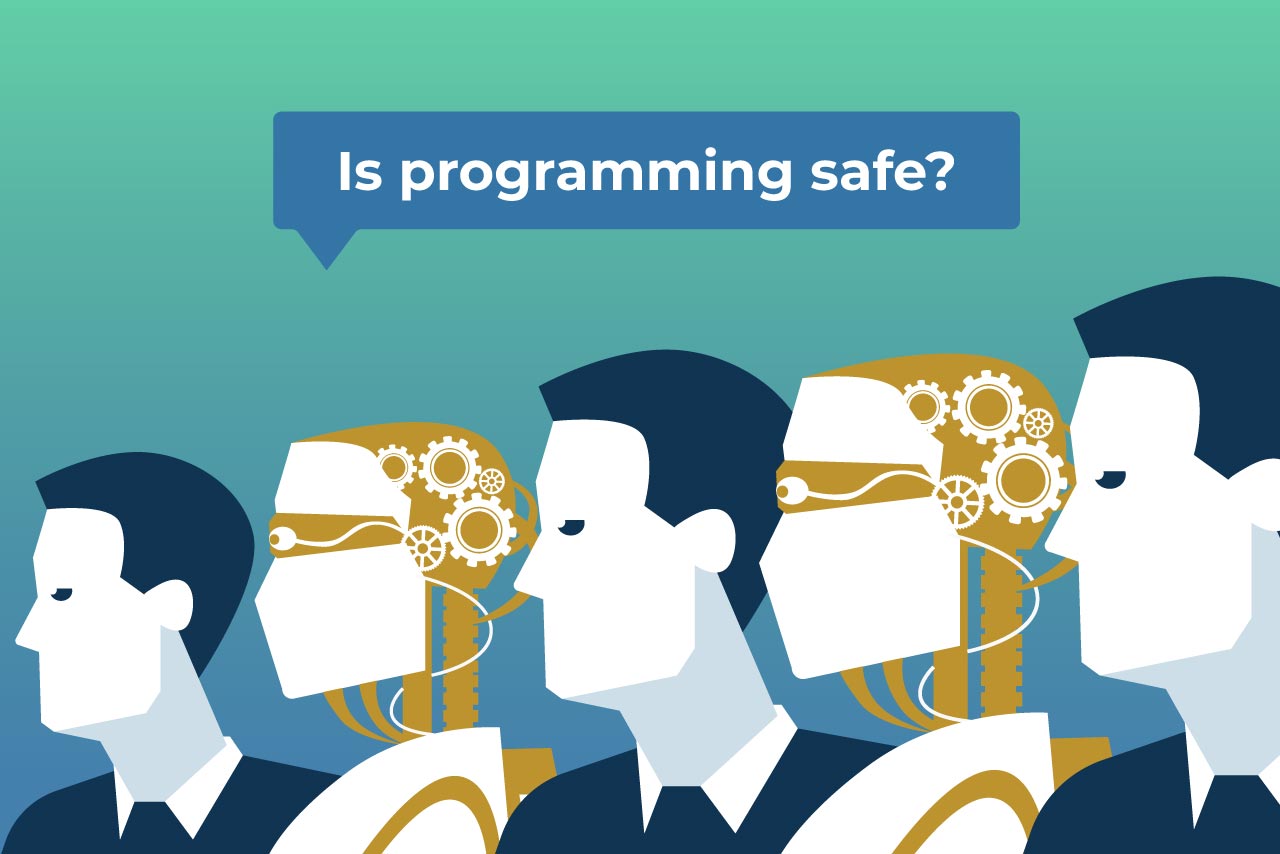As we head towards 2020, it’s more than reasonable to ask whether your job will still be around in the next decade or two. Job automation is happening across a vast range of fields. Breast cancer detection, for example, can be done via neural networks, which have been trained to pick up cancer signs from past viewing of tens of thousands of mammographic images. Even the creative fields aren’t safe, take Magenta, for example: a machine learning library from Google that can computer generate new music. In a world of automation is programming safe? We look at the likelihood of programming remaining an in-demand skill.
Hitting hard
Let’s start by looking at where job automation is likely to hit hard. Bookkeepers, for example, have a 97.6% chance of being automated. In contrast, mental health and substance abuse social workers have only a 0.3% chance of being automated, because their jobs require high levels of original thinking, negotiation and helping others.
What distinguishes one job from another? It seems four variables are at play: does your job require that you come up with clever solutions, do you have to personally help others, does your work require negotiation and, interestingly, does your occupation require you to squeeze into small spaces (i.e. jobs that are routine, repetitive and predictable)? Here are four graphs depicting these results.

Image source: https://www.npr.org/sections/money/2015/05/21/408234543/will-your-job-be-done-by-a-machine
If you want to calculate the chance of your job being automated, check out the ‘Will Robots Take My Job’ site. Software developers seem safe with a 4% probability of automation and a projected growth of 19% by 2024. However, over time, within the next two decades specifically, there is a 31% chance of automation.
There is some risk
Mario Peshev, the CEO of DevriX and a digital consultant, on the Forbes website says: “A certain portion of the software development industry will become automated and obsolete to some extent”. This is more likely to happen where elements are repetitive or could be bundled together. But, the software development industry “isn’t going anywhere,” especially where custom work and innovation is required.
A joint project between Microsoft and Cambridge University called DeepCoder is suggestive of this future, particularly where repetitive programming is found. DeepCoder can search a body of code to build a specific project to spec. As the system practises, it gets smarter, learning which bits of code work best together and when to replace a snippet of code with another.
But the future isn’t too bleak. Although systems like DeepCoder have some code development potential, this isn’t going to take away the jobs of developers, according to Armando Solar-Lezama of MIT. Rather, a combination system is likely to develop: developers will focus on more complex tasks while the more tedious aspects of code development will be automated.
So what kinds of software developers will be in high demand over the coming decade? Here we list three attributes:
Flexible
Programmers who embrace flexibility are in a stronger position. This would include being able to develop custom features, integrations, tailored admin, and user areas that are specifically adaptable for given industries.
High-performing
You will need coders who can help with a variety of performance issues as they relate to software applications – for example, where you are bundling together a number of tools or solutions, or where there is a massively large volume of users or data.
Knowledgeable about security
In any application, there is always a relationship between security and freedom of use. The more secure an application, the more steps or restrictions it includes. So ‘off the shelf’ solutions are, as a general rule, either super secure or usable but vulnerable. However, if you want something highly secure and usable, you would require a customised solution and people capable of implementing this.
There is a growing demand for the job role of cyber security specialist. From 2016 to 2026, the Bureau of Labor Statistics anticipates a 28% increase for work in this category. That’s faster than the average growth for all occupations in the US.
In conclusion, think about the future – what will smart homes, transport networks and the work environment look like? As technology continues assisting us in our day-to-day lives (and environments), you will need people who are able to design and implement it. Even if we think of a world with automation handling 90% of the tools, components and libraries out there, you will still need millions of software developers who can support, extend and integrate these solutions. Job automation is likely to hit hard, but software developers appear relatively safe.
If you’re keen to change careers or upskill, consider enrolling on a HyperionDev online bootcamp in Full Stack Web Development, Data Science or Software Engineering. You can also trial one of these courses for free. If online learning is not your thing, you could enrol in an immersive, face-to-face Web Developer or Software Engineering course in Cape Town or Johannesburg. Python is included in the Software Engineering and the Data Science bootcamp.


